40 лет Санкт-Петербургской типологической школе - [36]
It has often been pointed out that the periphrastic passive tends to be constructed with a perfective past participle, whereas the reflexive passive tends to use the imperfective form. On this subject Siewierska [1988: 247] notes that in Slavic languages, with the exception of Polish, the periphrastic passive including an imperfective participle rarely appears, and quotes Czech and Serbo-Croatian where the constructions are said to be used mainly in scientific texts. This affirmation is not wholly justified. In Russian, the contrast is not any clearer: the constructions with an imperfective past passive participle are sporadically attested [Maslov 1988; Poupynin 1996: 131] and are subject to strong lexical, syntactic and contextual constraints; they are allowed in varying degrees in Czech, Serbo-Croatian, Polish, and above all Bulgarian.
The «be»-perfective passive is claimed to convey both the meaning of a state resulting from a previous action and that of an action. The main argument for justifying such an analysis comes from a distributional property of the form, founded upon the compatibility of the perfective form with localisation markers. According to Khra-kovskij [1991; 151–154] and Knjazev [1988:350–351], the actional passive is compatible with time adverbials and adverbial phrases which are precise indications of the temporal interval relative to the preceding event and place markers ((10), (11)) whereas the resultative state is compatible with those which mark duration (12) or iterativity.
(10) Navremeto toj bil izpraten ot vujčo si <…> da
at time.the he was send.PPP.SG.M of uncle REFL.DAT DA
sledva v Moskva
study.PRES-3SG in Moscow
«At that time, he was sent by his uncle to study in Moscow».
(11) Vsesteny, bojnicy, kryšy,<…> v sčitannye sekundy byli all walls loop.holes roofs in count.PF.PPP seconds were zapolneny soldatami i kazakami
occupy.PF.PPP soldiers.INSTR and Cossacks.INSTR
«Within a few seconds all the walls, loop-holes, roofs, minaret balconies and even the dome of the mosque had been occupied by soldiers and Cossacks».
(12) Vsego 45 minut by I vključe-n teleskop,
in total 45 minutes was switch.on.PF-PPP telescope
a podgotovka к eksperimentu potrebovala vos'mi časov.
«It was only for 45 minutes that the telescope was switched on, whereas the preparation for the experiment had taken about eight hours».
It is well known that Polish is the only Slavic language which has two auxiliaries to form the periphrastic passive voice: the zostać passive which imposes a perfective participle and whose meaning is characterised as «actional», and the «be»-passive, which allows both the perfective participle and the imperfective and which, depending on the context, may take on either a so-called stative meaning or a so-called actional meaning:
(13a) Pokój został pomałowany w zeszłym roku /*dva razy
room became paint.PF.PPP.SG.M in last year/ two times
«The room was painted last year».
(13b) *Pokój został małowany w zeszłym roku
room became paint.IMPF.PPP.SG.M in last year
(13c) Pokój bił pomałowany w zeszłym roku / dvarazy
room was paint.PF.PPP.SG.M in last year / two times
«The room was only painted last year» / «The room was painted last year twice».
(13d) Pokój bił małowany w zeszłym roku
room was paint.IMPF.PPP.SG.M in last year
«The room was painted last year».
Siewierska [1984: 129, 1988: 251] notes that recourse to (13c) implies that the room needs repainting, whereas (13a) does not. If one admits that the passive resultative state determines a property of the patient while at the same time implying a preceding event, and if one takes into account the meaning of zostać «to become», one easily understands that such inferences may be made. Zostać directly links the resultative state to the event serving to highlight the transitional character of the event and to state that the patient's property has been acquired prior to the act of speaking; the adverbial expression is therefore taken as included in the transitional event, which would explain why the periphrastic construction with zostać is incompatible with dva razy «two times», mnogo raz «many times», etc. On the other hand, the «be»-passive with a perfective verb gives priority to the resultative state by only referring to the implied event, leading to ambiguity as to whether the resultative state belongs to the patient (meaning a resultative state) or whether the resultative state only serves to hark back to the event at the origin of the patient's affectation. The adverbial phrase in (13a) is presented as incident to the event, which allows one to understand why iteration is permitted.
The contrast we have just evidenced between these two types of constructions clearly appears in the following two examples, in which the adverbial phrase denoting duration is only allowed in the «be» — passive:
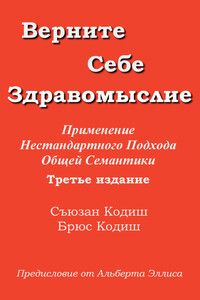
«Верните Себе Здравомыслие» – это книга, которая объясняет базовые положения общей семантики более простым, кратким и доступным языком в сравнении с 900-страничной формулировкой Альфреда Коржибски – Science and Sanity, а также даёт множество полезных и простых рекомендаций для практики и применения принципов Общей Семантики в повседневной жизни. Рекомендована к прочтению всем интересующимся данной дисциплиной, а также тем, кто желает приобрести новые навыки решения жизненных проблем. Третье издание.
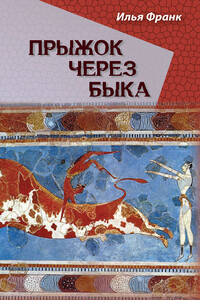
Почему, оказавшись между двух людей с одинаковыми именами, вы можете загадывать желание? На сей насущнейший вопрос и отвечает эта книга. Если же серьезно, то она рассказывает о зверином двойнике героя – в искусстве вообще и в литературе в частности.
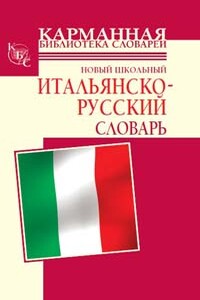
Словарь, созданный русскими и итальянскими специалистами, знакомит читателей с новыми словами, их различными значениями и оттенками, а также случаями употребления, которые можно активно использовать в повседневной жизни.Более 1000 слов и текстовых примеров, позволяющих раскрыть особенности синтаксиса современного итальянского языка.

В книге изучается феномен непрямого выражения смысла в языке. Сопоставляются различные толкования этого явления в русском символизме, феноменологии, лингвистике, семантике, аналитической философии, структурализме, теориях референции, тропологии, нарратологии, деконструктивизме и др. Выявляются и анализируются разнообразные конкретные способы непрямого выражения смысла: расщепленная, отсроченная, непрямая референция; двуголосие, полифония, антиномические конструкции; расшатывание акта именования, символ и метафора; ингенциональные и аттенциональные сцепления, модальные и тональные сдвиги; смещения и наслоения фокусов внимания, расщепление «я» говорящего на частные «голоса», их попеременные смены, чередования и наложения; саморедукция авторского голоса и ее степени, стадия инсценированной «смерти автора» и т.
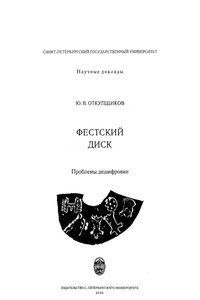
Данная публикация посвящена трудному и запутанному вопросу по дешифровке таинственного памятника древней письменности — глиняного диска, покрытого с обеих сторон надписью из штампованных фигурок, расположенных по спирали. Диск был найден в 1908 г. на Крите при раскопках на месте древнего Феста. Было предпринято большое количество «чтений» этого памятника, но ни одно из них до сих пор не принято в науке, хотя литература по этому вопросу необозрима.Для специалистов по истории древнего мира, по дешифровке древних письменностей и для всех интересующихся проблемами дешифровки памятников письменности.
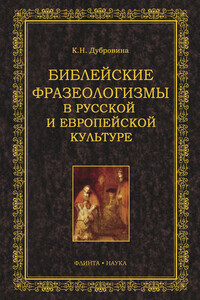
Книга представляет собой научный труд в популярном, доступном изложении. В ней рассказывается о библейских фразеологизмах (образных выражениях, пословицах, поговорках, афоризмах, крылатых изречениях) и библеизмах – словах в русском и других европейских языках, а также об отражении библейских образов, сюжетов, идей, правовых и морально – этических норм и воззрений древнего Востока в культуре народов, исповедующих христианскую религию. Особое внимание уделяется русской национальной культуре: использованию библейских слов и выражений в русском языке, в художественной и публицистической литературе, в изобразительном и музыкальном искусстве.Для гуманитариев разных специализаций: филологов, историков, культурологов, искусствоведов, школьных учителей, преподающих основы христианской (православной) культуры, а также для самого широкого круга читателей, интересующихся историей русского языка и культурой русского и европейских народов.Книга создана на кафедре общего и русского языкознания филологического факультета Российского университета дружбы народов (РУДН) при поддержке Российского государственного научного фонда (РГНФ).